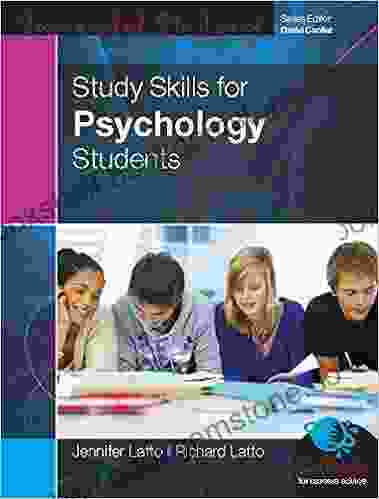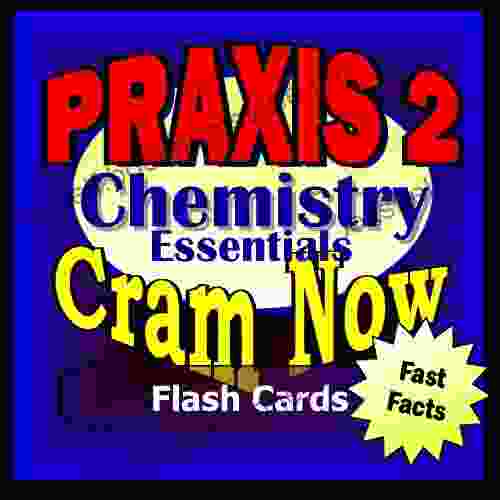Study Skills for Psychology Students: A Comprehensive Guide to Achieving Success

Psychology is a fascinating but demanding field of study that requires students to possess strong study skills to succeed. This comprehensive guide aims to equip psychology students with the essential study skills, techniques, and strategies to enhance their academic performance and maximize their understanding of the subject matter.
1. Time Management and Organization
Effective time management is crucial for psychology students who often juggle multiple assignments, readings, and exams. Here are some time management strategies to consider:
4.4 out of 5
| Language | : | English |
| File size | : | 38854 KB |
| Screen Reader | : | Supported |
| Print length | : | 240 pages |
| X-Ray for textbooks | : | Enabled |
- Prioritize tasks: Identify the most important tasks and allocate your time accordingly. Use a to-do list or planner to keep track of deadlines and assignments. - Create a study schedule: Establish a regular study schedule that includes specific times for studying, reviewing notes, and completing assignments. Stick to this schedule as much as possible. - Break down large tasks: Divide overwhelming tasks into smaller, manageable chunks to make them less daunting and easier to accomplish. - Take breaks: Regular breaks help to improve focus and productivity. Schedule short breaks throughout your study sessions to prevent burnout.
2. Note-Taking Methods
Effective note-taking plays a vital role in retaining information and enhancing understanding. Here are some proven note-taking methods for psychology students:
- Cornell Method: Divide your notebook page into three sections: notes, cues, and summary. Take notes in the main section, write keywords or questions in the cues section, and summarize the main points in the summary section later. - Outline Method: Organize your notes in a hierarchical structure, using Roman numerals for main points, capital letters for subpoints, and numbers for supporting details. - Mapping Method: Create a visual representation of the concepts, connecting key ideas and concepts with lines and arrows. This method helps to visualize relationships and connections within the material.
3. Critical Thinking and Analysis
Psychology requires students to develop critical thinking skills to analyze, interpret, and evaluate research findings and theories. Here are some strategies to improve critical thinking:
- Question assumptions: Challenge the underlying assumptions of theories and research findings. Consider alternative explanations and perspectives. - Identify bias: Be aware of potential biases in research studies and critically evaluate the validity and reliability of the data presented. - Synthesize information: Integrate information from multiple sources to form a comprehensive understanding of the topic. Consider different perspectives and draw connections between concepts.
4. Memory Techniques
Psychology students need to retain a vast amount of information, making memory techniques essential. Here are some effective memory techniques:
- Spaced Retrieval: Regularly review and recall the material you've studied, increasing the intervals between each review. This helps to strengthen long-term memory. - Chunking: Break down large amounts of information into smaller, manageable chunks to make them easier to remember. - Elaboration: Connect new information to existing knowledge and personal experiences to enhance understanding and recall. - Mnemonics: Use memory tricks, such as acronyms, songs, or rhymes, to help you remember key concepts.
5. Active Reading and Comprehension
Active reading involves actively engaging with the text to enhance understanding and retention. Here are some active reading strategies to adopt:
- Preview the material: Before reading a chapter or article, skim through to get an overview of the main topics and structure. - Annotate while reading: Highlight, underline, or make notes in the margins of the text to engage with the material and improve comprehension. - Summarize and reflect: After reading a section, pause to summarize the main points in your own words. This helps to consolidate your understanding. - Ask questions: As you read, formulate questions about the material to clarify concepts and maintain focus.
6. Study Group Collaboration
Forming study groups can provide valuable opportunities for collaboration and learning. Here are some guidelines for effective study group sessions:
- Choose compatible members: Select group members who are committed, organized, and share similar learning styles. - Establish clear goals: Define the objectives of each study session and ensure everyone is on the same page. - Assign roles: Delegate different tasks to group members to share responsibilities and encourage participation. - Facilitate discussion: Encourage open and active discussion of the material, sharing perspectives and clarifying concepts.
7. Test-Taking Strategies
Preparing for exams effectively is essential for success in psychology. Here are some proven test-taking strategies:
- Prepare thoroughly: Review your notes, textbooks, and study materials diligently before the exam. - Manage time wisely: Allocate time for each section of the exam and stick to it to avoid spending too much time on any one question. - Eliminate distractors: Identify and eliminate potential distractions during the exam, such as noise or anxiety, to maintain focus. - Review and double-check: Before submitting your exam, take a few minutes to review your answers and double-check for errors or omissions.
Mastering effective study skills is essential for psychology students to succeed in their academic endeavors. By implementing the strategies outlined in this comprehensive guide, students can enhance their time management, note-taking abilities, critical thinking, memory techniques, active reading skills, study group collaboration, and test-taking strategies. Psychology students who develop strong study habits will not only excel in their coursework but also lay a solid foundation for their future careers in the field of psychology. Remember, success in psychology requires consistent effort, dedication, and a commitment to developing effective study skills.
4.4 out of 5
| Language | : | English |
| File size | : | 38854 KB |
| Screen Reader | : | Supported |
| Print length | : | 240 pages |
| X-Ray for textbooks | : | Enabled |
Do you want to contribute by writing guest posts on this blog?
Please contact us and send us a resume of previous articles that you have written.
 Best Book
Best Book Page Flip
Page Flip Bookshelf
Bookshelf Literary loom
Literary loom Chapter
Chapter Bookish
Bookish PageTurner
PageTurner Bibliophile
Bibliophile Story
Story Inkwell
Inkwell Bookworm
Bookworm Labyrinth
Labyrinth Plot Twist
Plot Twist Prose
Prose Paperback
Paperback Storyteller
Storyteller Sanctuary
Sanctuary Fiction
Fiction Reading
Reading Chronicle
Chronicle Read
Read Chantel Acevedo
Chantel Acevedo Richard Connor
Richard Connor Bruce Heyman
Bruce Heyman Alison Mcghee
Alison Mcghee Maha Alkurdi
Maha Alkurdi Asrai Devin
Asrai Devin James Patterson
James Patterson S K Gupta
S K Gupta Joe Abercrombie
Joe Abercrombie Craig M Kershaw
Craig M Kershaw Dinesh Kumar Goyal
Dinesh Kumar Goyal Lsatmax Lsat Prep
Lsatmax Lsat Prep Pierluigi Spagnolo
Pierluigi Spagnolo Shawn Inmon
Shawn Inmon Original Edition Kindle Edition
Original Edition Kindle Edition Barbara Krumhardt
Barbara Krumhardt Jon C Stott
Jon C Stott Sigurd F Olson
Sigurd F Olson Paul Volponi
Paul Volponi Ginger Sinsabaugh
Ginger Sinsabaugh Jonathan A Levi
Jonathan A Levi Dmv Test Bank
Dmv Test Bank Sybille Bedford
Sybille Bedford Erfun Geula
Erfun Geula Audiolearn Content Team
Audiolearn Content Team Lila Z Rose
Lila Z Rose Michael V Uschan
Michael V Uschan Roberta Raigh Pryor
Roberta Raigh Pryor Wolfedale Press
Wolfedale Press Bruce Boudreau
Bruce Boudreau Vincent Chidindu Asogwa
Vincent Chidindu Asogwa Marcia Desanctis
Marcia Desanctis Luisa Gastambide
Luisa Gastambide Daryl Balfour
Daryl Balfour Kathleen Kirkland
Kathleen Kirkland Chris Moss
Chris Moss Thad Vogler
Thad Vogler Marcia Langton
Marcia Langton Steven Schneider
Steven Schneider Barbara Fradkin
Barbara Fradkin Tao Le
Tao Le William Pitts
William Pitts Paul Cobley
Paul Cobley Judy Lipson
Judy Lipson Darryl Hughes
Darryl Hughes Paul Noble
Paul Noble Michael Egan
Michael Egan Sumoreads
Sumoreads Stephen J Pyne
Stephen J Pyne Kindle Edition
Kindle Edition Rebecca Kaye
Rebecca Kaye Freya Stark
Freya Stark Russ Howard
Russ Howard Sharon Asher
Sharon Asher C F Carter
C F Carter Viki Winterton
Viki Winterton James Teitelbaum
James Teitelbaum Pat Guy
Pat Guy Sarah Vowell
Sarah Vowell Jay Greeson
Jay Greeson Simon Bird
Simon Bird Barry Broadfoot
Barry Broadfoot Jose Antonio Vargas
Jose Antonio Vargas Tiara R Brown
Tiara R Brown Alina Adams
Alina Adams Griselda Sprigg
Griselda Sprigg Eric Seale
Eric Seale Karen O Toole
Karen O Toole Jess Tiffany
Jess Tiffany Korrel Kanoy
Korrel Kanoy Lauren Lucien
Lauren Lucien Tim Severin
Tim Severin Barbara Mould Young
Barbara Mould Young Sacha Black
Sacha Black Smart Edition
Smart Edition Lisa Mcclendon Sims
Lisa Mcclendon Sims R M Patterson
R M Patterson Daily Language Learning
Daily Language Learning Dr John T Whiting
Dr John T Whiting Blake Banner
Blake Banner Ben Cook
Ben Cook Barbara Allan
Barbara Allan Pam Coburn
Pam Coburn Nicholas Gagnier
Nicholas Gagnier Marie Herbert
Marie Herbert Ken Horlor
Ken Horlor Wayne Stewart
Wayne Stewart Deborah Miller
Deborah Miller Tracy Brown Collins
Tracy Brown Collins Sue Tyson Ward
Sue Tyson Ward Paul Oliver
Paul Oliver Indy Quillen
Indy Quillen Bob Reiss
Bob Reiss Charles A Wells
Charles A Wells Erica Abbett
Erica Abbett Jeff Kolby
Jeff Kolby Kingsley Augustine
Kingsley Augustine 4th Edition Kindle Edition
4th Edition Kindle Edition Tia Williams
Tia Williams Printright
Printright Christine A Smyczynski
Christine A Smyczynski Gerald Durrell
Gerald Durrell Alex Kava
Alex Kava Jose M Forero Bautista
Jose M Forero Bautista John Otis
John Otis Susan Straight
Susan Straight Shannon Ables
Shannon Ables Leland Chant
Leland Chant Taras Grescoe
Taras Grescoe John Hersey
John Hersey Balazs Csigi
Balazs Csigi Judy Tilton Brunner
Judy Tilton Brunner Peter Ballin
Peter Ballin Leckie
Leckie 8th Edition Kindle Edition
8th Edition Kindle Edition Kayla Chalko
Kayla Chalko Shirley J Shepherd
Shirley J Shepherd Vernon G Zunker
Vernon G Zunker Sadeqa Johnson
Sadeqa Johnson Julian Mcdougall
Julian Mcdougall Clair Lasater
Clair Lasater Nick Kypreos
Nick Kypreos Cathy A Malchiodi
Cathy A Malchiodi Suzanne Brickman
Suzanne Brickman Marty Gitlin
Marty Gitlin Osasumwen Asoro
Osasumwen Asoro John Gilstrap
John Gilstrap Bob Goddard
Bob Goddard Cyprian Mendonca
Cyprian Mendonca Doretta Groenendyk
Doretta Groenendyk Sandra Cain
Sandra Cain John Morrison
John Morrison Ged Gillmore
Ged Gillmore Marty Ofonagoro
Marty Ofonagoro Susan Jane Gilman
Susan Jane Gilman James A Cashin
James A Cashin Matt Kalman
Matt Kalman Dk Eyewitness
Dk Eyewitness James Good
James Good Elke Gschossmann Hendershot
Elke Gschossmann Hendershot Stephen Graham
Stephen Graham Greg Wyshynski
Greg Wyshynski Clifford D Stark
Clifford D Stark Robert Crais
Robert Crais Paul Watson
Paul Watson Laurie Frankel
Laurie Frankel Kim Heinbuch
Kim Heinbuch Brad Olsen
Brad Olsen Thant Myint U
Thant Myint U Stephanie Saldana
Stephanie Saldana My Daily Russian
My Daily Russian Reinaldo Arenas
Reinaldo Arenas J A Johnstone
J A Johnstone Sylvain Tesson
Sylvain Tesson Approach Guides
Approach Guides Joseph Toone
Joseph Toone 1st Edition Kindle Edition
1st Edition Kindle Edition Daniel Mode
Daniel Mode Bryan Nelson
Bryan Nelson Ruth Everhart
Ruth Everhart William Beebe
William Beebe Bobby Newman
Bobby Newman Scott Colby
Scott Colby Innovative Language Learning
Innovative Language Learning Amanda Barnes
Amanda Barnes Brian Kent
Brian Kent Kristin Hannah
Kristin Hannah Richard Bronson
Richard Bronson Lori Haskins Houran
Lori Haskins Houran Brian Clegg
Brian Clegg Mark Zegarelli
Mark Zegarelli Mitt Romney
Mitt Romney E C Murray
E C Murray Nicky Pellegrino
Nicky Pellegrino Lance Pototschnik
Lance Pototschnik James D Giovannini
James D Giovannini Jack Donnelly
Jack Donnelly Peter Mcdougall
Peter Mcdougall Jason Hogan
Jason Hogan Diane Lindsey Reeves
Diane Lindsey Reeves Lisa Pietsch
Lisa Pietsch Hugh Henderson
Hugh Henderson Blair Braverman
Blair Braverman Ryan Murdock
Ryan Murdock Jay Griffiths
Jay Griffiths Mark Greenside
Mark Greenside Quick Reads
Quick Reads Roderick J Fraser Jr
Roderick J Fraser Jr American Math Academy
American Math Academy Russell Blake
Russell Blake Dan Fullerton
Dan Fullerton Hans Staden
Hans Staden Curving Earth Publishing
Curving Earth Publishing Chuck Gormley
Chuck Gormley Tara Baukus Mello
Tara Baukus Mello Roald Amundsen
Roald Amundsen Nirosha Ruwan
Nirosha Ruwan Brian Leaf
Brian Leaf Robert Louis Stevenson
Robert Louis Stevenson Beth Bartolini Salimbeni
Beth Bartolini Salimbeni Barzin Pakandam
Barzin Pakandam Mario Rizzi
Mario Rizzi Ed Willes
Ed Willes Orson Scott Card
Orson Scott Card Test Masters
Test Masters Lynda Jones
Lynda Jones Meghan Mccarthy
Meghan Mccarthy Bobby Orr
Bobby Orr Johnny Quinn
Johnny Quinn Don L Gates
Don L Gates Mike Sonnenberg
Mike Sonnenberg Elijah N Daniel
Elijah N Daniel Shannon Dittemore
Shannon Dittemore Big Daddy Ozone
Big Daddy Ozone Linda Anne Silvestri
Linda Anne Silvestri Andy Fine
Andy Fine Gregory J Privitera
Gregory J Privitera Sergio Rassu
Sergio Rassu William W Johnstone
William W Johnstone Nat Brown
Nat Brown Pamela Bartley
Pamela Bartley Tyler Omoth
Tyler Omoth Brandon Stanton
Brandon Stanton Haim Watzman
Haim Watzman Print Replica Kindle Edition
Print Replica Kindle Edition David Newton
David Newton Rashaun Johnson
Rashaun Johnson Wendy C Crone
Wendy C Crone Janet Evans
Janet Evans Maoz Azaryahu
Maoz Azaryahu James Grant Peterkin
James Grant Peterkin Rick Steves
Rick Steves Jim Harrison
Jim Harrison Brian Reddington
Brian Reddington Gill James
Gill James Nahee Park
Nahee Park T I Lowe
T I Lowe N K Jemisin
N K Jemisin Brad Anderson
Brad Anderson Lee Jamison
Lee Jamison Donnie Smith
Donnie Smith Anna Curran
Anna Curran Jon A Archambault
Jon A Archambault Lonely Planet
Lonely Planet David L Golemon
David L Golemon Direct Hits
Direct Hits Peter Nichols
Peter Nichols Jamie Pedrazzoli
Jamie Pedrazzoli Gwenda Cornell
Gwenda Cornell Joeanna Rebello Fernandes
Joeanna Rebello Fernandes Nikki Kazimova
Nikki Kazimova Gideon Labiner
Gideon Labiner Nancy Roe Pimm
Nancy Roe Pimm Zigzag English
Zigzag English Sam Quek
Sam Quek I C Robledo
I C Robledo Arianna Astuni
Arianna Astuni John Biggam
John Biggam Simon Gervais
Simon Gervais Maria Elena Alonso Sierra
Maria Elena Alonso Sierra Stephanie Lewis
Stephanie Lewis Brian Andrews
Brian Andrews William Least Heat Moon
William Least Heat Moon Ted Dorsey
Ted Dorsey Charles Dickens
Charles Dickens Yuki Mano
Yuki Mano John Mcphee
John Mcphee William Mckeen
William Mckeen Debbie S Miller
Debbie S Miller Jeri Magg
Jeri Magg Kate Maloy
Kate Maloy Gerry Lekas
Gerry Lekas Carrie Winstanley
Carrie Winstanley Atul Kalhan
Atul Kalhan Agnieszka Latocha
Agnieszka Latocha Georgios Papadakis
Georgios Papadakis Suzanne Reece
Suzanne Reece Manfred Theisen
Manfred Theisen Natalya Androsova
Natalya Androsova Sunny Lockwood
Sunny Lockwood Illustrated Edition Kindle Edition
Illustrated Edition Kindle Edition Wilfred Cude
Wilfred Cude Julie Argyle
Julie Argyle Janine Robinson
Janine Robinson Tracy Owens
Tracy Owens Annabel Chase
Annabel Chase Brandon Sanderson
Brandon Sanderson Nelson Demille
Nelson Demille Deanne Howell
Deanne Howell Steven Rothfeld
Steven Rothfeld Burt L Standish
Burt L Standish Graham Mackintosh
Graham Mackintosh Annika Hernroth Rothstein
Annika Hernroth Rothstein Tara Kangarlou
Tara Kangarlou Jerry A Pattengale
Jerry A Pattengale Borja Loma Barrie
Borja Loma Barrie Russell Clark
Russell Clark Hicham And Mohamed Ibnalkadi
Hicham And Mohamed Ibnalkadi Key Notes
Key Notes Shannon Enete
Shannon Enete Beryl Ratzer
Beryl Ratzer Er Sunil Batra
Er Sunil Batra Bruce Barcott
Bruce Barcott H M Conroy
H M Conroy Bob Mckenzie
Bob Mckenzie Matt Rendell
Matt Rendell Neal Patterson
Neal Patterson Bryan Ethier
Bryan Ethier Jane Bottomley
Jane Bottomley Bruce Rosenfeld
Bruce Rosenfeld Tim Wharnsby
Tim Wharnsby Rick Townsend
Rick Townsend Wilfred M Mcclay
Wilfred M Mcclay Baby Professor
Baby Professor Bonnie Bley
Bonnie Bley Ryszard Kapuscinski
Ryszard Kapuscinski William Friar
William Friar The Total Travel Guide Company
The Total Travel Guide Company Jennifer Steil
Jennifer Steil Bill Streever
Bill Streever Alexandria House
Alexandria House David Faulkner
David Faulkner Angelo Tropea
Angelo Tropea Caryn Boddie
Caryn Boddie Barbara A Lynch Johnt
Barbara A Lynch Johnt Ruth Garner
Ruth Garner Paul Blanchard
Paul Blanchard Dr Hooelz
Dr Hooelz Jason E Portnof
Jason E Portnof Maya Benami
Maya Benami David Churchman
David Churchman Michael Tefula
Michael Tefula Devaki Lakshmi
Devaki Lakshmi Barry Eisler
Barry Eisler Greg Jacobs
Greg Jacobs Nicole Chung
Nicole Chung Naomi Hansen
Naomi Hansen Robert A Johnson
Robert A Johnson Steve Sorensen
Steve Sorensen Joseph A Citro
Joseph A Citro C Rich
C Rich Brent J Burrows Ii
Brent J Burrows Ii Christie Sausa
Christie Sausa Ed Stafford
Ed Stafford Gail Fay
Gail Fay Kelli Lawrence
Kelli Lawrence Egon Erwin Kisch
Egon Erwin Kisch Michael Vlessides
Michael Vlessides Janet Beissinger
Janet Beissinger Jeffrey Brautigam
Jeffrey Brautigam John Hodgman
John Hodgman Magi Nams
Magi Nams Pico Iyer
Pico Iyer Nick Jans
Nick Jans Elizabeth Gardner
Elizabeth Gardner Dennis Stemmle
Dennis Stemmle Kevin Milton
Kevin Milton Katie Malachuk
Katie Malachuk Chris Santella
Chris Santella Phyllis Folb
Phyllis Folb Eunice Lewis Ph D
Eunice Lewis Ph D Sean Dooley
Sean Dooley Robert Whiting
Robert Whiting Richard Sattora
Richard Sattora Nilakantasrinivasan J Neil
Nilakantasrinivasan J Neil C F Crist
C F Crist Nathan Halberstadt
Nathan Halberstadt Mary Ann Hogan
Mary Ann Hogan George J Hademenos
George J Hademenos Joanna Kujawa
Joanna Kujawa Louise Heal Kawai
Louise Heal Kawai Mary Jo Mcconahay
Mary Jo Mcconahay Julia Ann Clayton
Julia Ann Clayton Glenn Rivers
Glenn Rivers Gregory Maassen
Gregory Maassen Steve Hely
Steve Hely Cathy Jackson
Cathy Jackson Raja Shehadeh
Raja Shehadeh Bob Duff
Bob Duff Mark Donnelly
Mark Donnelly Bruce Berglund
Bruce Berglund Kyoan
Kyoan Simon Winchester
Simon Winchester Bret Baier
Bret Baier Bill Ingersoll
Bill Ingersoll Jacob Brezinski
Jacob Brezinski Jon B Barry
Jon B Barry Jan Tristan Gaspi
Jan Tristan Gaspi Susan Davis Becker
Susan Davis Becker Noor Ain
Noor Ain Businessnews Publishing
Businessnews Publishing Craig Medico
Craig Medico Susan Meissner
Susan Meissner Dojolab Inc
Dojolab Inc Karen George
Karen George Rosemarie Allen
Rosemarie Allen April Vahle Hamel
April Vahle Hamel Tanmay Mehta
Tanmay Mehta Johan Reinhard
Johan Reinhard Corine Gantz
Corine Gantz Nick Adams
Nick Adams Janisse Ray
Janisse Ray Robin Hobb
Robin Hobb Rebecca Westrup
Rebecca Westrup Lisa Kleypas
Lisa Kleypas Anton Chekhov
Anton Chekhov Martin Sternstein
Martin Sternstein Rajani Katta
Rajani Katta Omni Reads
Omni Reads Nic Oatridge
Nic Oatridge Terrance Zepke
Terrance Zepke Michael R Lindeburg
Michael R Lindeburg W Michael Kelley
W Michael Kelley Darcy Gaechter
Darcy Gaechter Pamela K Lamb
Pamela K Lamb Bruno Grelon
Bruno Grelon Charles H Dyer
Charles H Dyer Tim Brown
Tim Brown Alice Morse Earle
Alice Morse Earle Eric Simons
Eric Simons John Muir
John Muir David Morris
David Morris Chris Fagan
Chris Fagan Levison Wood
Levison Wood Tina Cho
Tina Cho Anselme Baud
Anselme Baud Study Guide Edition Kindle Edition
Study Guide Edition Kindle Edition Doug Hall
Doug Hall Jason Zemcik
Jason Zemcik Marek Sobski
Marek Sobski Disha Experts
Disha Experts Intelligent
Intelligent Arthur Miller
Arthur Miller Jude Deveraux
Jude Deveraux Pati Jinich
Pati Jinich Gray Malin
Gray Malin Ari Mennander
Ari Mennander Emma Sue Prince
Emma Sue Prince Brad Dude
Brad Dude R Bruce Richardson
R Bruce Richardson Jeanne St James
Jeanne St James Ben Wildavsky
Ben Wildavsky Thaddeus Hatter
Thaddeus Hatter Robert Andrew Powell
Robert Andrew Powell Nicholas Hirshon
Nicholas Hirshon Anne E Brevig
Anne E Brevig Rafael Ocasio
Rafael Ocasio Ingo Berensmeyer
Ingo Berensmeyer Eli Wilson
Eli Wilson Michel Roy
Michel Roy Marie Cirano
Marie Cirano Steve Sonntag
Steve Sonntag Vicki Hearne
Vicki Hearne Kay Walten
Kay Walten Ashley Schmitt
Ashley Schmitt Robert Caprio
Robert Caprio Arden Rembert Brink
Arden Rembert Brink Peterson S
Peterson S John Gregory Smith
John Gregory Smith Dawn Adlam
Dawn Adlam Culture Smart
Culture Smart C Michael Hiam
C Michael Hiam Frances Mayes
Frances Mayes Dan Myers
Dan Myers Brien Foerster
Brien Foerster Bob Smale
Bob Smale Sarah Smierciak
Sarah Smierciak Clay Boutwell
Clay Boutwell David Baldacci
David Baldacci Genius Reads
Genius Reads Paul Deepan
Paul Deepan Stephen Hui
Stephen Hui R K Agarwal
R K Agarwal Seymour Resnick
Seymour Resnick Lori Schumacher
Lori Schumacher Blether Travel Guides
Blether Travel Guides Brandon Royal
Brandon Royal Ben Egginton
Ben Egginton Michael Lieberman
Michael Lieberman Nishant Jindal
Nishant Jindal Peter Barber
Peter Barber Ronald A Reis
Ronald A Reis Gebshu Kukhet
Gebshu Kukhet Frank Ayres
Frank Ayres Leslie Thomas
Leslie Thomas Christine Wiebe
Christine Wiebe Gary Robert Muschla
Gary Robert Muschla Joshua Obanijesu
Joshua Obanijesu Hokulani K Aikau
Hokulani K Aikau Stephen Haddelsey
Stephen Haddelsey Oliver Bullough
Oliver Bullough Rodney Paul
Rodney Paul Schoolhouse Heaven
Schoolhouse Heaven Peter Liljedahl
Peter Liljedahl Vincent Min
Vincent Min Walter Dare
Walter Dare Josh Tabor
Josh Tabor Penelope Douglas
Penelope Douglas Boye Lafayette De Mente
Boye Lafayette De Mente Karen Hill Anton
Karen Hill Anton Lori Evert
Lori Evert David Mcilroy
David Mcilroy Kevin Griffith
Kevin Griffith Christina Pawlowski
Christina Pawlowski Geraldine Woods
Geraldine Woods Julie Tagg
Julie Tagg Daniel Farcas
Daniel Farcas Martin J Pring
Martin J Pring Stephen Tarsitano
Stephen Tarsitano Tom Palmer
Tom Palmer Kim Dinan
Kim Dinan Kenneth Cline
Kenneth Cline Thomas Booth
Thomas Booth Mathivanan Palraj
Mathivanan Palraj Scott Graham
Scott Graham Kavitha M
Kavitha M Terry Palechuk
Terry Palechuk Lois Pryce
Lois Pryce Jackson Carter
Jackson Carter Joseph Mctaggart
Joseph Mctaggart Beau Riffenburgh
Beau Riffenburgh John R Morgan
John R Morgan Rod Nordland
Rod Nordland Devin Carroll
Devin Carroll Mandee Heller Adler
Mandee Heller Adler Bruce Spydar
Bruce Spydar William Cowper Prime
William Cowper Prime Scott Coplan
Scott Coplan Paddy Mcqueen
Paddy Mcqueen Texes Exam Secrets Test Prep Team
Texes Exam Secrets Test Prep Team Anne Strathie
Anne Strathie Gabriel J Connor
Gabriel J Connor Miles Martin
Miles Martin Tony Burton
Tony Burton James Rollins
James Rollins Book Worm Publishing
Book Worm Publishing Brett Edward Whalen
Brett Edward Whalen Sally Poncet
Sally Poncet Lawrence W Tuller
Lawrence W Tuller Funso Aiyejina
Funso Aiyejina Les Weatheritt
Les Weatheritt Wendy Francis
Wendy Francis Pamela And Fred Peters
Pamela And Fred Peters Katherine Dunham
Katherine Dunham Benjamin Smith
Benjamin Smith Ben Buckton
Ben Buckton Heather E Schwartz
Heather E Schwartz Dr John Hockey
Dr John Hockey Daniel Putkowski
Daniel Putkowski Cristen Hemingway Jaynes
Cristen Hemingway Jaynes Trish Nicholson
Trish Nicholson Lucas Burns
Lucas Burns Pass Your Class
Pass Your Class Laura Dave
Laura Dave Sara Dawn Johnson
Sara Dawn Johnson Lizabeth Hardman
Lizabeth Hardman Anthony J Bennett
Anthony J Bennett Janet E Wall
Janet E Wall James A Michener
James A Michener Nanette Witmer
Nanette Witmer Tommy Xiao Wan
Tommy Xiao Wan Go Books
Go Books Damion Hunter
Damion Hunter Rets Griffith
Rets Griffith College Hippo
College Hippo Templeton Peck
Templeton Peck Tristan Jones
Tristan Jones
Light bulbAdvertise smarter! Our strategic ad space ensures maximum exposure. Reserve your spot today!

 Thomas PynchonMy Mexican Moments: Sarah Vowell Explores Mexico's Rich Culture and Complex...
Thomas PynchonMy Mexican Moments: Sarah Vowell Explores Mexico's Rich Culture and Complex...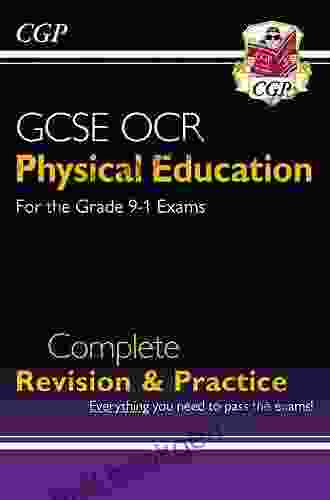
 Bobby HowardGrade Gcse Physical Education Ocr Complete Revision Practice: The Ultimate...
Bobby HowardGrade Gcse Physical Education Ocr Complete Revision Practice: The Ultimate...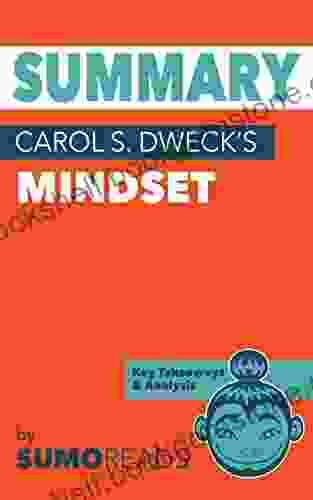
 Gabriel Garcia MarquezSummary of Carol Dweck's Mindset: The Power of Believing You Can Improve
Gabriel Garcia MarquezSummary of Carol Dweck's Mindset: The Power of Believing You Can Improve Felix CarterFollow ·8.1k
Felix CarterFollow ·8.1k Ian McEwanFollow ·9.2k
Ian McEwanFollow ·9.2k Mikhail BulgakovFollow ·5.3k
Mikhail BulgakovFollow ·5.3k Roger TurnerFollow ·17.3k
Roger TurnerFollow ·17.3k Dean ButlerFollow ·2.4k
Dean ButlerFollow ·2.4k Robert Louis StevensonFollow ·12.9k
Robert Louis StevensonFollow ·12.9k Clark CampbellFollow ·16.5k
Clark CampbellFollow ·16.5k Sidney CoxFollow ·12.1k
Sidney CoxFollow ·12.1k
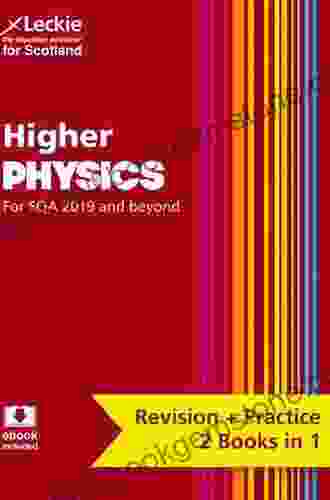
 Douglas Powell
Douglas PowellPreparation and Support for Teacher Assessment: Leckie...
Teacher assessment is an important part of...

 Derek Bell
Derek BellMaster the Basics of Japanese Grammar: A Comprehensive...
Embarking on your journey to master the...
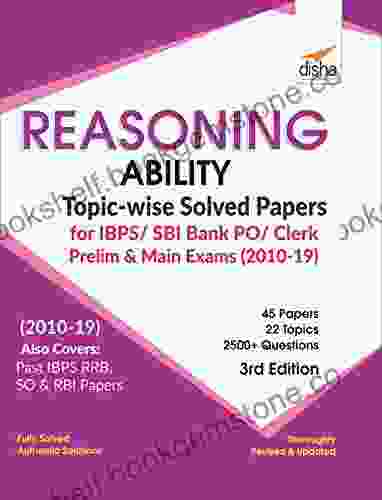
 Edison Mitchell
Edison MitchellReasoning Ability Topic Wise Solved Papers For IBPS SBI...
The Reasoning...

 F. Scott Fitzgerald
F. Scott FitzgeraldA New Survey of the West Indies, 1648: Broadway...
Published in...

 Cooper Bell
Cooper BellPeekaboo Baby Toddler: 150 Animal Flash Cards for...
Are you ready to embark on...
4.4 out of 5
| Language | : | English |
| File size | : | 38854 KB |
| Screen Reader | : | Supported |
| Print length | : | 240 pages |
| X-Ray for textbooks | : | Enabled |


